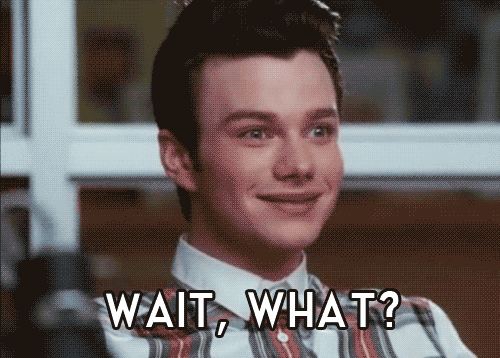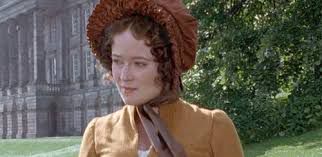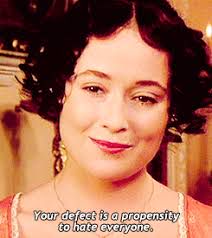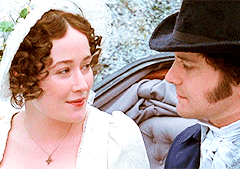Element 2: Progressive Complications
Progressive complications are the situations your characters have to navigate to get from Inciting Incident to the Climax.
"To complicate progressively means to generate more and more CONFLICT as they face greater and greater forces of antagonism, creating a succession of events that passes points of no return." Robert McKee, STORY
The most important thing the progressive complication does is test your characters in a way that forces them to confront their weaknesses so they can undergo the change desired by the end of the novel.
This will be different for every novel, and will be determined by the controlling idea(s) of the novel.
For example:
If your MC needs to undergo a change in maturity level then perhaps the progressive complications force them to take more and more responsibility, while shattering what they thought was true and forcing them to take a good hard look at the world and themselves.
Good examples of maturity sub-plots are most YA novels including: Hunger Games, Harry Potter, Divergent, To Kill A Mocking Bird.
If your character needs to overcome their fears, the complications should be tailored for this to happen. But remember they should also be a logical progression of the story.
IMPORTANT NOTE:
"A story must not retreat to actions of lesser quality or magnitude, but move progressively forward to a final action beyond which the reader cannot imagine another." Robert McKee, STORY
It can be a struggle to create more and more complications which don't end up repeating or reversing in magnitude.
My first draft of my first novel had progressive complications which escalated in violence because that was the only way I could think to progressively complicate things. This is completely unnecessary and should be guided by what is necessary for your characters to grow, not the scale of impact on the outside world.
How do I create logical and dynamic progressive complications?
1. OPEN THE GAP (Creates dynamic complications)
2. BECAUSE - THEREFORE - BUT (Ensures logical complications that build on each previous one)
3. CREATE COMPLEX CONFLICT (Creates Dynamic complications)
OPEN THE GAP
The gap is the opening between what is expected to happen in a certain situation, and what actually happens.
Ex. If your main character goes to their friend expecting understanding and commiseration, but finds an unwilling ear and a diatribe about how they don't know how lucky they are and how they should stop complaining, that is a gap.

Now your MC has to deal with that complication. Maybe its a turning point for their character and they look in the mirror and see what kind of person they really are. Then they have to make a choice on this realization, to change, or stay the same.
The gap is where your story gets interesting because the unexpected keeps happening. This is where oftentimes writers will make lists of possible reactions or things that can happen, to find the right gap. Usually the first thought is what the readers will expect, and a good book always keeps a reader intrigued because the author has stayed three steps ahead of the reader the whole time (or at least they should).

While the best stories have endings which are inevitable (We all know Jane and Mr. Bingley will get married in the end, that was promised in the beginning, and obviously Katniss is going to win the Hunger Games, Harry was going to defeat Voldemort) the journey there must be the surprising part. It must make us doubt our first instinct as readers that the inevitable will in fact happen. By the end of Act 1 of Pride & Prejudice, and even more so by the end of Act II, we are certain there can be no chance of Jane marrying Mr. Bingley.
BECAUSE - BUT - THEREFORE
This is a method of creating progressive complications which are in a logical sequence. It's almost like a quick timeline/outline for the story and can look like this:
BECAUSE
Mr. Darcy spurns Elizabeth at a dance THEREFORE Elizabeth's pride is hurt and she is willing to believe any bad thing about him, and decides to despise him.

BECAUSE Elizabeth must go and take care of her sister at Netherfield THEREFORE Elizabeth must interact with Mr. Darcy more than she likes BUT Her interactions have the opposite effect she intended and he falls in love with her.
BECAUSE Elizabeth is open to believing the worst of Mr. Darcy, and Mr. Wickham is very charming and attentive to her THEREFORE She is inclined to believe Mr. Wickham's account of him.
BECAUSE Mr. Darcy leaves for London after the ball THEREFORE Elizabeth believes herself rid of him.
BECAUSE Elizabeth refuses Mr. Collins THEREFORE Mr. Collins proposes Charlotte.
BECAUSE Charlotte is Elizabeth's best friend THEREFORE Charlotte asks Elizabeth to come with her family to visit her
BUT The patron of Mr. Collins is Mr. Darcy's Aunt THEREFORE She and Mr. Darcy meet again.
BECAUSE His cousin inadvertently tells Elizabeth about Mr. Darcy breaking up Jane and Mr. Bingley, as well as her previous beliefs about him THEREFORE When Mr. Darcy proposes, Elizabeth refuses him BUT It turns out she was wrong about his character THEREFORE She must examine her own and realize the truth about how badly behaved her family truly is, and her own behavior also being faulty and she says, "Until this moment, I never knew myself." (TURNING POINT FOR ELIZABETH'S CHARACTER & THE GLOBAL STORY)
This doesn't incorporate all of the progressive complications leading up to Elizabeth's refusal, and ultimate acknowledgement of her own flaws, but they are the principle ones which lead to her personal realization.
This can be done either as an outlining technique, or an editing analysis technique to make sure there are logical cause and effect for each progressive complication.
CREATE COMPLEX CONFLICT
Conflict must be complex to be truly dynamic.
By complex I don't mean it affects a lot of people, I mean it has to create conflict at multiple levels. The levels of conflict are as follows: (from STORY)
INNER CONFLICT
PERSONAL CONFLICT
EXTRA-PERSONAL CONFLICT
Inner conflict is pretty easy to define - it only affects one character and is often shown as inner monologue. (Think one person play)
Personal conflict is usually between two characters, or internal to families - but doesn't affect anyone outside of that personal sphere, and may not cause inner conflict. (Think soap opera where everyone is related)
Extra-personal conflict affects mostly those outside the character. (Think James Bond)
The best conflict created by progressive complications is multi-level. Your complications may begin with inner conflict, progress to both inner and personal, and then at your climax point the conflict blends all three.
The Hunger Games Series actually shows this perfectly in the progression of the series itself:
The Hunger Games revolves primarily around Katniss as a sole central character and her experience, only really opening to personal conflict in the second half of the book.
Catching Fire revolves around Katniss and Peta's relationship. They are together in almost every scene and is much more about them figuring out their relationship than the first book, while still testing Katniss's inner morals and suspicions. At the end of the book Katniss's actions thrust them into greater conflict which begins the rebellion.
Mocking Jay moves to encompass all three levels. Katniss is dealing with personal issues as the face of the rebellion, she and Peta have some major relationship issues, as do she and Gale, and to top it off her actions from the very first book have kicked off a full scale revolution which affects the whole country.
Obviously each book in the series creates complex conflict in almost every progressive complication, if not every one. But in terms of a masterful use of complex conflict to drive a series from beginning to end, I can't think of a better example.
(Now I have to figure out how to replicate this...)
LITERARY EXAMPLES
In Pride & Prejudice (I just reread this so you're going to get a lot of examples from this book - it's also a masterful work) the progressive complications leading up to the end of the first act are as follows:
1. Mr. Bingley clearly favors Jane
2. Jane gets sick at Netherfield
3. Mr. Wickham and the militia come to town
4. Mr. Collins comes to town
5. The Ball at Netherfield
There are other things that happen within all of these (parties etc) but these are the progressive complications of Act I, which serve for highlighting the major flaws of Elizabeth's family, and serving as a basis for Mr. Bingley to be convinced he shouldn't marry Jane.
Mr. Bingley leaving Netherfield and Jane's hopes being dashed is a global progressive complication, for a story about the women needing to marry well, and also wanting to marry for love.
Each complication is logical for the genre and setting, (militia's moving about the country and settling in different villages, the estate being entailed away to Mr. Collins, balls being held).
Each complication is dynamic in that they are surprising, and create conflict.
On top of that, each complication lays groundwork for future complications or revelations (Mr. Wickham's true character and her sister's disgrace with him, the connection with Mr. Darcy, the Prejudice Elizabeth allows herself to feel because of her wounded pride leading her to reject Mr. Darcy), and build until the midpoint where both Elizabeth and Mr. Darcy realize they must take a good look at themselves and their families to truly understand their shortcomings. The complications in the second half of the book provide them with opportunities to overcome these shortcomings and prove to each other they have changed, and in changing, find love for themselves and Mr. Bingley and Jane.

Importantly, the crisis conflict - when Lydia runs away with Mr. Wickham - the conflict becomes inner (Elizabeth blames herself for not making Wickham's character known), personal (her family's flaws are exposed to each other and the world in ways which change their opinion of each other in a meaningful way), and extra-personal (the other girls' chances of marriage are at risk, and that puts Darcy and Bingley's families at risk since they wish to marry them, and it also affects the relationship with Mr. Collins and Lady Catherine - all the characters in the novel are affected by this conflict).
I may add more examples as I get more time. Feel free to let me know if you have good ones you want added.
REMINDER** Don't worry about whether your progressive complications are meeting all of these high standards in your first draft. This is a tool for analysis and editing! Write and finish your first draft first, then worry about making it shine.
***
If this makes sense so far please consider voting on this chapter!
If you have questions, please don't hesitate to ask. I'm going to do some Q/A chapters later on so if you've got a particular area you want help on or more information please let me know and I'll make sure to address it in a later chapter.
Your engagement is what makes this book better so I appreciate all comments and suggestions.
Bạn đang đọc truyện trên: AzTruyen.Top